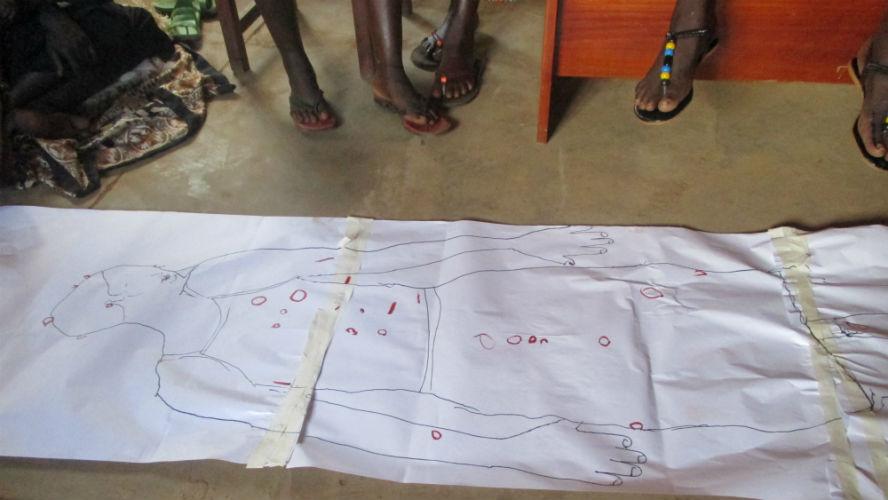As part of monitoring the Dominic Ogwen trial (‘Ongwen Trial’) at the International Criminal Court (ICC), JRP gathered the opinions of community members directly affected by the LRA in Acholi and Lango sub regions to inform the trial process. Of the many issues discussed, the concerns raised by victims of sexual and gender-based violence (SGBV) appeared to be the most pertinent. With the expansion of cases against Dominic Ongwen involving SGBV crime, victims of sexual violence do not feel they are given an adequate platform to follow the trial and express their views. According to many SGBV victims, they are marginalized in their community as a result of the stigma attached to sexual violence and being a former abductee. Consequently, they are unable to sit with other community members to watch the trial and express their opinions freely. The victims of SGBV therefore seek a more conducive environment that enables them to participate in the trial at the local level.
Other issues raised by the community concern the victim’s reparation mechanism of the ICC. Whilst they expressed their knowledge of being beneficiaries of the ICC Trust Fund for Victims (‘Trust Fund’), only verified victims who testify and confirm the situation can benefit from the reparations scheme. As such, they believe it is not fair to compensate those who testify at trial. Victims also hold the view that compensating only victims directly affected by Ongwen or his brigade is likely to cause segregation and division among other LRA abductees. Furthermore, there is an overall loss of morale for victims to participate in the trial process as a result of the conditions imposed by the ICC Trust Fund. They posed questions such as “what justice will I get from the trial?” Questions like these reflect the inadequacy of information disseminated to the victims, which has resulted in a lack of understanding by the victims of the mechanism itself.
Victims also believe the UPDF should be held accountable for their suffering. In their view, the ICC is working for the Government of Uganda by using government resources as evidence to prosecute Dominic Ongwen. According to the victims, if the Government was able to track Ongwen’s communications with the LRA leader when planning to attack a village, then why didn’t the UPDF respond to protect the civilians or inform civilians of the planned attack? Consequently, victims are dissatisfied and disappointed with Ugandan Government’s submission of evidence to the ICC. Victims also believe the ICC process is selective justice. They questioned why only Dominic Ongwen is being tried and why other commanders who were more culpable were given amnesty
Contrasting interests in the Ongwen trial has resulted in segregation between victims and local communities. While victims wish to see Ongwen punished and held accountable for his actions, local communities either want Ongwen to walk free or to be prosecuted through a local justice mechanism. The increasing tension between victims and local communities calls for reconciliation efforts.
Despite the ICC’s attempt to anonymise witnesses through voice distortion, victims can still be identified by those who have lived with them for a significant period of time. This has caused insecurity in potential witnesses, thereby discouraging participation in the trial process.
Identification and registration of witnesses have also proved to be problematic. Victims believe that legitimate victims are being excluded because local leaders and those in charge of witness identification and registration have abused the system by registering their friends and family to benefit from the trial.
JRP urges the ICC to strengthen its complementarity mechanism to promote co-existence irrespective of the court process. People should be prepared to co-exist regardless of whether Ongwen is found guilty.
In seeking to respond to some of the issues raised, JRP in partnership with ICC Women and in collaboration with the ICC’s Field Outreach Office in Uganda, we will be showing a private screening to victims of SGBV in the districts of Gulu, Amuru, Abok, Pader, and Nwoya. This initiative seeks to provide a more suitable environment for conflict-affected SGBV victims to follow the trial process and to freely express their views. JRP is confident that this initiative will empower victims of sexual violence to participate in the trial process, whilst encouraging them to advocate for justice and accountability for the injustices they suffered.

